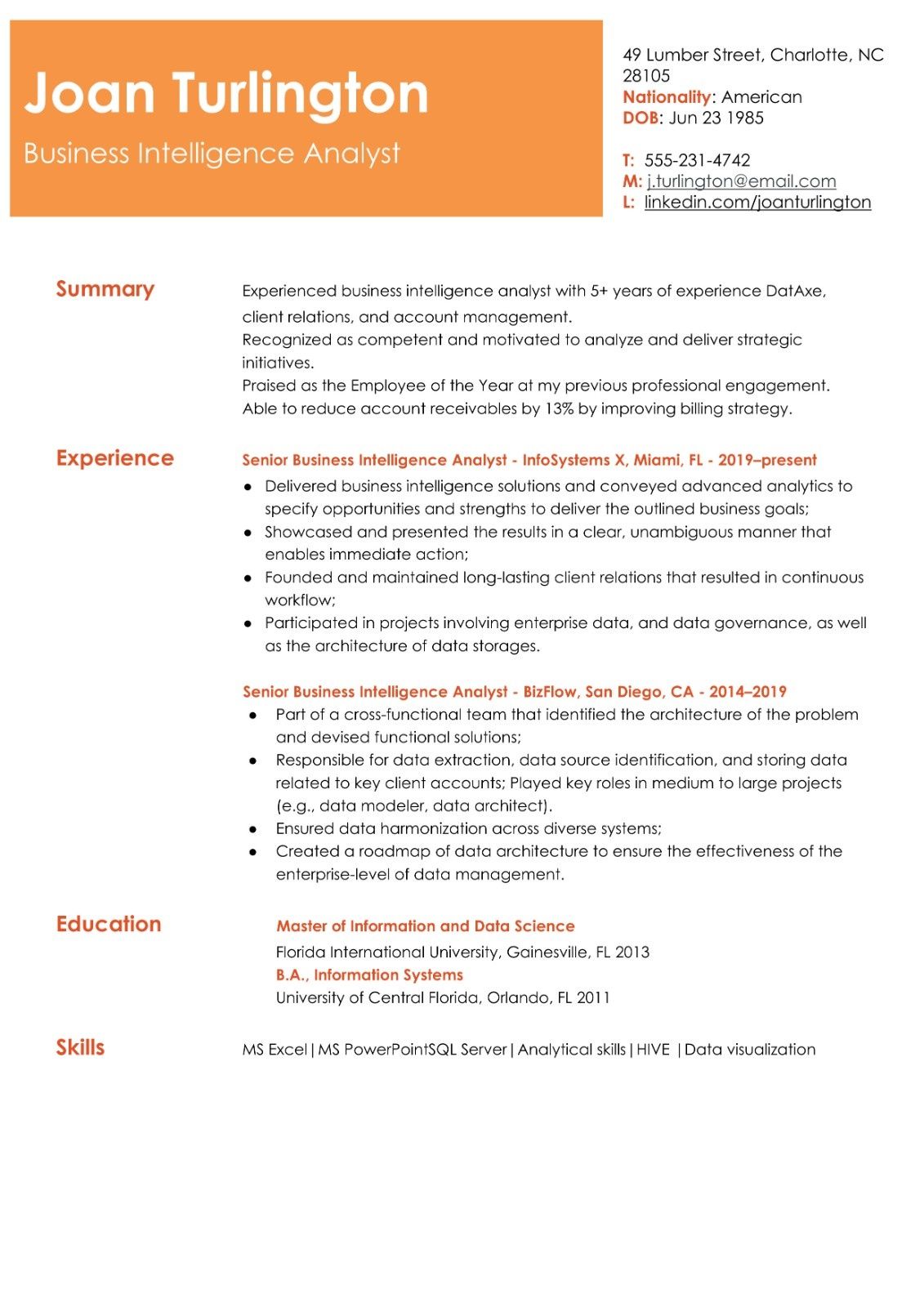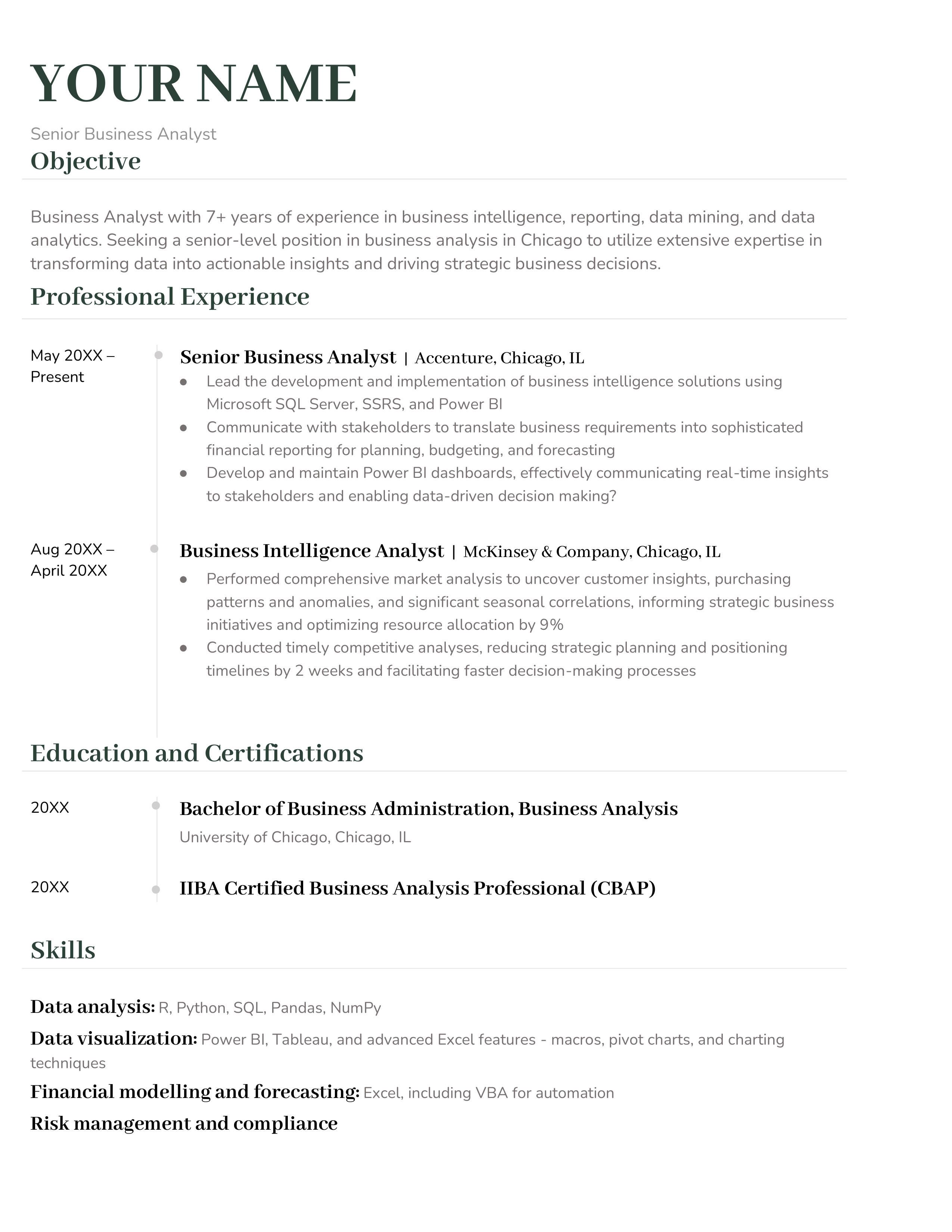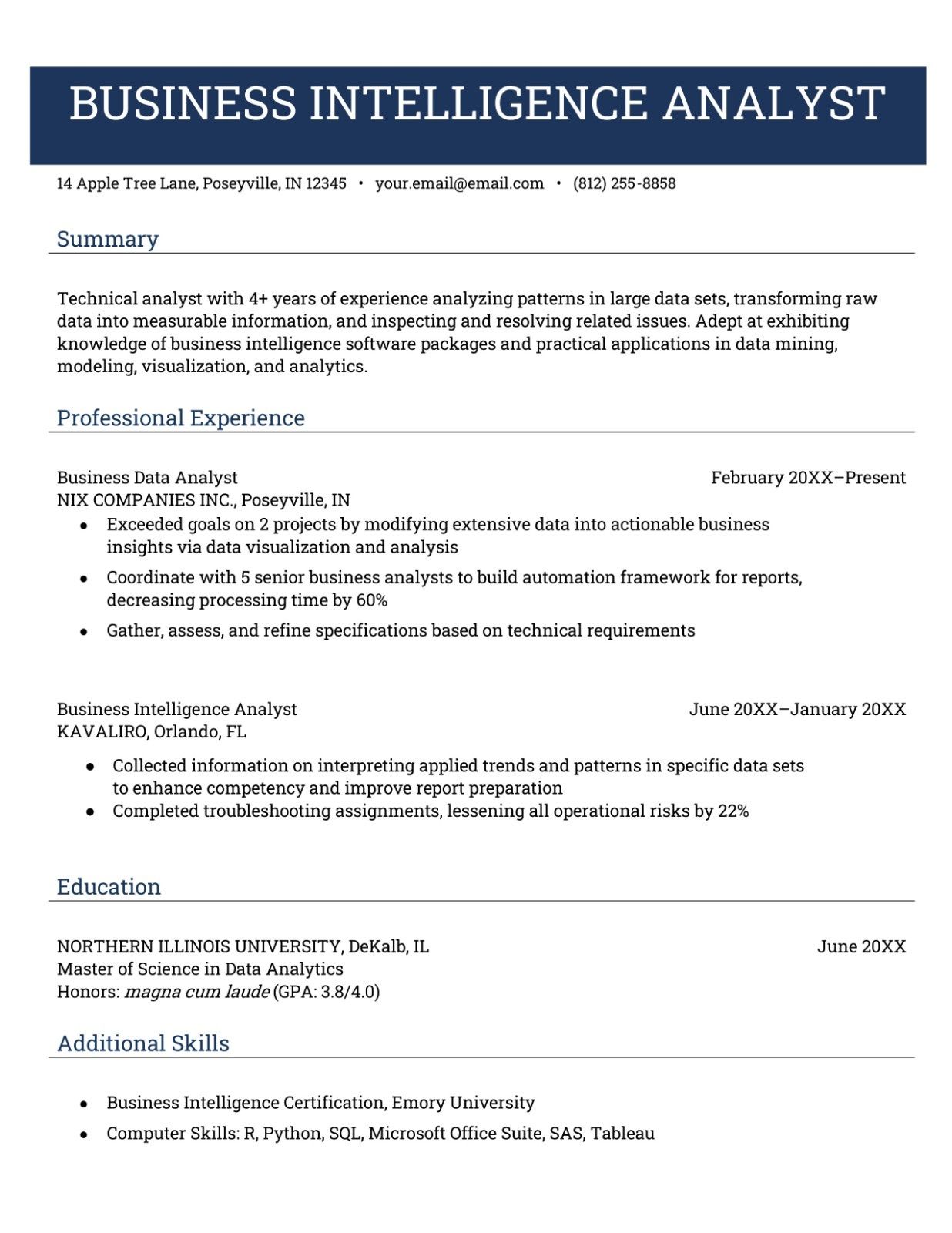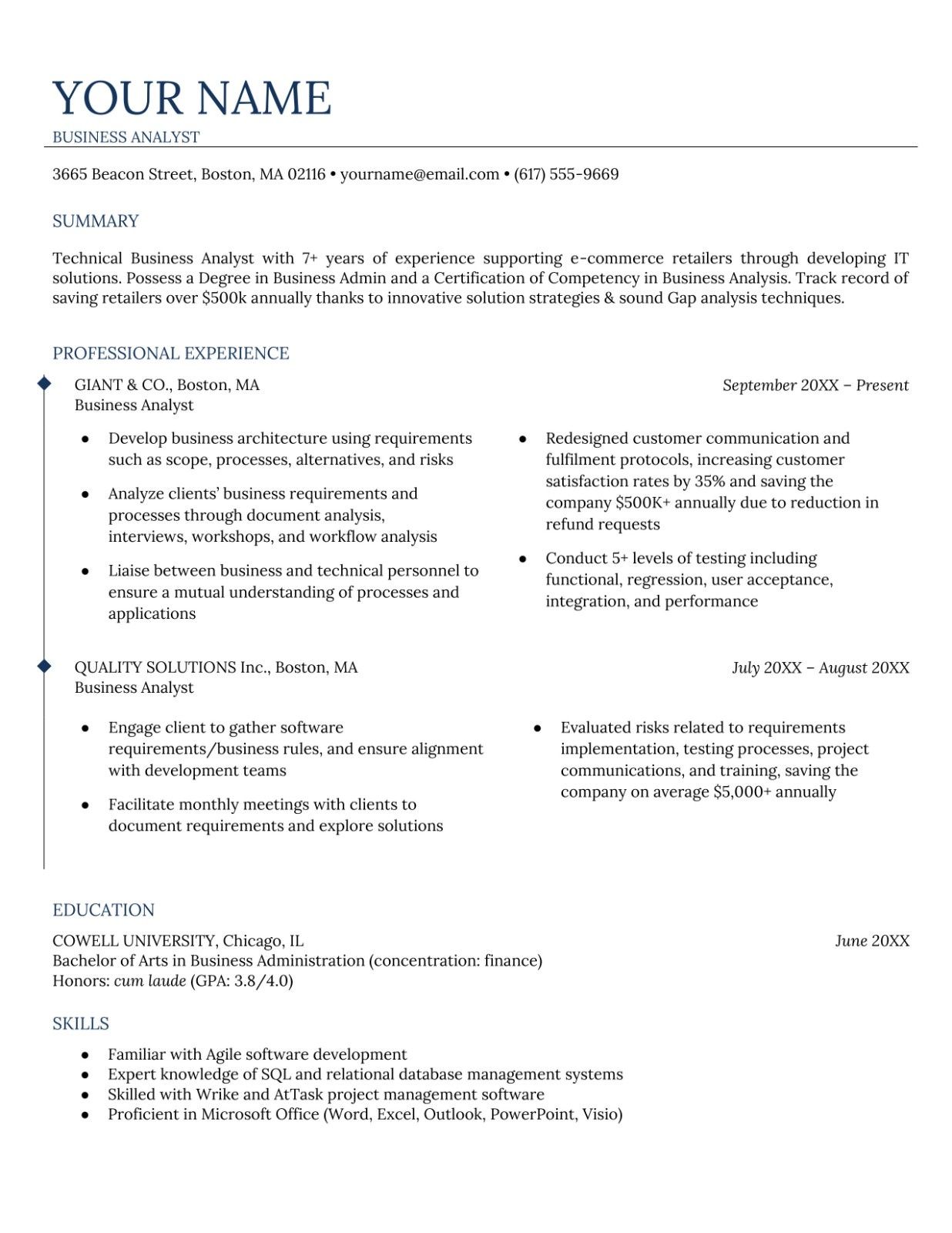Business Analyst Resume
Published on September 7th, 2024
Business analysts are crucial to organizations playing the role of managing the processes, optimize decision-making, and achieve strategic objectives. Whether a seasoned professional or a new addition in the profession, an outstanding resume is an absolute key to get into one's next role. A well-designed resume will have all the stakeholders' exposure, analytical skills, and your demonstration of bringing together business objectives and technical solutions that relate to them.
Let's get started and walk you through how to write a compelling business analyst resume that captures your strengths and showcases your expertise.
Check out the free templates for business analysts.
Templates 1

Templates 2

Templates 3

Templates 4

Strong Summary for Business Analyst
Your summary in a resume constitutes an outline of who you are as a professional and what you can offer the potential employer. It should capture your experience, core strengths, and key areas of expertise.
Example: "Results-oriented Business Analyst with more than 5 years of work experience in process improvement and business decision support through data analysis. Extensive experience working on gathering requirements, facilitation of stakeholder communication, and providing actionable insights. Proficient in SQL, Tableau, and business modelling tools.
Also read: Medical receptionist resume and Office manager resume.
Note:
- Highlight your years of experience and key areas of expertise
- Alter the summary to be as close to a reflection of the job description of the role you are applying for.
- List specific tools and software with which you have experience.
Core Competencies of Business Analysis
Business analysts need to be very sharp in both technical, analytical, and interpersonal skills that will drive business analysis. As you craft your skills section, make sure to emphasize those that best articulate that in this job.
Key Skills
- Data Analysis: SQL, Excel, Power BI, Tableau
- Business Process Improvement: Lean, Six Sigma, BPMN
- Requirements Gathering: Stakeholder interviews, user stories, workshops
- Documentation: Business Requirement Documents, Functional Requirement Documents.
- Tools & Software: Jira, Trello, MS Visio, Microsoft PowerPoint.
Example of Skills Section:
- Data Analytics Tools: SQL, Excel, Tableau
- Business Process Modeling: BPMN, Lean Six Sigma
- Project Management Tools: Jira, Asana, Trello
- Requirements Documentation: BRD, FRD, Use Cases
Note:
- Tailor your skills for every job posting.
- Balance the requirements with listing a mix of technical tools (SQL) and business tools (Jira, MS Visio).
Showcase Your Experiences
Work experience needs to demonstrate the various means by which you applied your business analysis skills to companies you've worked for to generate business value. As much as possible, mention the consequential measurable outputs and specific responsibilities that really held a relation with the job.
Example: Business Analyst | ABC Corp | January 2019 – Present
- Analysed and documented business processes; documented some inefficiencies in the system, which led to 15% reduction of operational costs.
- Worked in cross-functional teams to elicit and document requirements which contributed to the successful delivery of three large-scale implementation projects.
- Analyzed data to contribute to business decision-making and increased customer retention by 10%.
- Worked closely with stakeholders by holding workshops to seek input/feedback from stakeholders, developing project scope and creating some detailed requirement documentation.
Note:
- Use action words like "analyzed," "collaborated," "led," and "implemented" while describing your job responsibilities.
- Focus on the value you generated in quantifiable terms-i.e., dollars saved or cycle time improvement.
- Emphasize cross-team collaboration or stakeholder management.
Customize Your Resume to Every Job
For instance, a generic resume will not cut it today; you will want to give your self the best shot by tailoring your resume to each job. This would involve really reading the job description and infusing relevant keywords and skills matched to what the employer is looking for.
If for instance this job posting pays so much attention to data analysis tools such as SQL or Power BI, ensure that these tools are well highlighted in your resume.
Note:
Many employers use ATS to search for resumes containing relevant keywords. Using the right wording from the job posting will increase the chances that your resume passes through this initial screening process.
Education and Certifications
Most business analysts hold degrees in business, finance, computer science, or information technology. You should also include any relevant certifications for business analysis because it will make you a far more credible candidate.
Example:
Education:
- BSc in Business Administration – XYZ University
- MSc in Information Systems – ABC College
Certification:
- CBAP Certification
- Lean Six Sigma Green Belt
- PMI-PBA Professional in Business Analysis
Note:
- Incorporate any relevant certifications by name, including CBAP, PMP, or Six Sigma.
- List education, especially if degrees or coursework in any of these fields (business, IT, finance, etc).
Optional:
Include a Portfolio or Case Studies
For those with experience, a good idea would be to showcase a portfolio of previous work. Showing case studies indicating your problem-solving, stakeholder management, and data analysis would build an even stronger resume.
Add to this list:
- Process Improvement case studies before and after metrics
- Data analysis projects visualizing the data and Business insights
- Stories about software implementation (role you played and outcomes)
Final Words
A perfect business analyst resume that competently communicates how well you can analyze data, improve processes, and communicate well with stakeholders. Bring out the technical and business skills while indicating some of the impacts you have also had during previous functions. Always draft a resume for each job, relevant certifications, and always have measurable achievements behind all claims.
Hire the best without stress
Ask us how
Never Miss The Updates
We cover all recruitment, talent analytics, L&D, DEI, pre-employment, candidate screening, and hiring tools. Join our force & subscribe now!
Stay On Top Of Everything In HR

